Academics
All our academic programs are targeted at missiological leadership training for leaders-to-be, and deepening missiological capacity for leaders. BIU credits are transferable to other institutions for further studies in missions and missiology, as per existing policy of the individual school.
BIU credits are transferable to other institutions for further studies in missions and missiology as per existing policy of the individual school.



We are members of the International Council of Higher Education (ICHE), Zurich, Switzerland.
We are gazetted by the Ministry of Education, Singapore, as a private religious organization.
BIU is the training division of Asia Pacific Mission, Ltd.

We are members of the International Council of Higher Education (ICHE), Zurich, Switzerland.

We are gazetted by the Ministry of Education, Singapore, as a private religious organization.

BIU is the training division of Asia Pacific Mission, Ltd.
Our 3-Faceted Core Values
Hearing God
Living by Faith
Christ-like Character Development
Our 3-Fold Training Philosophy
A mix of pedagogical andragogical methods are deployed in formal (academic), non-formal (experiential), and informal (spontaneous interactive-discipleship) learning settings.
Academic Modules
- School of Spiritual Formation
- School of Biblical Studies
- School of incarnational Missionary Leadership
- School of Missiological Perspectives
- School of Models of Evangelism
- School of Contextual Studies
- School of Applied Missiology (community development and crisis relief studies)
- School of Missionary Strategies
- School of Business as Mission Studies (Micro-economics), Environment and Ecology
- School of Missiological Education
- Project / Thesis (projecting the integrated model of a School)
Be Framework
Through Spiritual Formation
- Knowing God
- Hearing God
- Prayer & Intercession
- Faith Living
- Prophetic and Five-fold Ministry
- Spiritual Warfare and Deliverance.
Through Ministry Duties
- Servant-hood Inculcation.
Through Spiritual Disciplines
- Solitude
- Fasting and Prayer
- Intercession
- Worship and Word
- Small Group Mentoring
Do Methodology
- FET (Field Entry Training for missionary leaders to be)
- MOT (Model Observation Trip for existing leaders for capacity building)
- Culture Orientation and Language Learning
- Cross-cultural Navigation and Evangelism
- Understanding Missionary Life
- Prayer Walking the Land
- Spiritual Mapping of the Culture
Thesis (A Final 100-page Thesis as the final graduating requirement)
5 step-process of Blueprint preparation in the form of a Master’s level thesis
- “Hear God” for a Vision
- Writing a personal Philosophy of Ministry in Mission
- Fleshing out a Philosophy of Missiological Education
- Designing a Integrated culturally sensitive missiological Curriculum
- Projecting the Outcomes as missionaries to reach the UPG’s
Our 3-Fold Training Philosophy
A mix of pedagogical andragogical methods are deployed in formal (academic), non-formal (experiential), and informal (spontaneous interactive-discipleship) learning settings.
Academic Modules
- School of Spiritual Formation
- School of Biblical Studies
- School of incarnational Missionary Leadership
- School of Missiological Perspectives
- School of Models of Evangelism
- School of Contextual Studies
- School of Applied Missiology (community development and crisis relief studies)
- School of Missionary Strategies
- School of Business as Mission Studies (Micro-economics), Environment and Ecology
- School of Missiological Education
- Project / Thesis (projecting the integrated model of a School)
Be Framework
Through Spiritual Formation
- Knowing God
- Hearing God
- Prayer & Intercession
- Faith Living
- Prophetic and Five-fold Ministry
- Spiritual Warfare and Deliverance.
Through Ministry Duties
- Servant-hood Inculcation.
Through Spiritual Disciplines
- Solitude
- Fasting and Prayer
- Intercession
- Worship and Word
- Small Group Mentoring
Do Methodology
- FET (Field Entry Training for missionary leaders to be)
- MOT (Model Observation Trip for existing leaders for capacity building)
- Culture Orientation and Language Learning
- Cross-cultural Navigation and Evangelism
- Understanding Missionary Life
- Prayer Walking the Land
- Spiritual Mapping of the Culture
Thesis (A Final 100-page Thesis as the final graduating requirement)
5 step-process of Blueprint preparation in the form of a Master’s level thesis
- “Hear God” for a Vision
- Writing a personal Philosophy of Ministry in Mission
- Fleshing out a Philosophy of Missiological Education
- Designing a Integrated culturally sensitive missiological Curriculum
- Projecting the Outcomes as missionaries to reach the UPG’s
Our 3-Pronged Strategy
Trainers
Multiply Missionary Training Schools for training fellow nationals for planting churches for reaching their own unreached people groups.
Church Planters
Multiply Churches among Unreached Peoples
Tentmakers
Multiply Disciples in Creative Access unreached Nations
Educational Philosophy: Vision and Focus
BIU’s training is primarily developed to enable Asians, Africans, and Latin Americans, to reach the greater 10/40 Window nations (Westerners are also accepted if their calling is to this "Window").
Click Here to Find out More
-
- It is determined then that this region will be the primary focus of all prayer, planning, and training concern, and challenge.
-
- It is essential that training be creative, flexible, contextualized and culturally-sensitive because many of these missionaries will be primarily pioneers and trailblazers, going into new and often challenging scenarios.
-
- Training must go beyond the academic and even experiential to hone students’ total dependence on the Spirit of God, hearing His voice and following His guidance and direction to live by faith and developing Christ-Like Character. This calls for unique and specialized curricular components.
- Missiological Education for Trainer students will be taught on how to develop new training programs to accomplish the goal of reaching the great 10/40 Window nations for starting contextualized and culturally sensitive missionary training centers.We will utilize all components of our missionary training as a framework and model to augment the lectures and experiential aspects of their training as educators.
Educational Philosophy: Competence for Ministry
BIU's purpose is to produce Christ-like competent, and effective field missionaries, mission leaders, and mission educators who in obedience to God and filled by the Spirit of God fulfill the Will of God in seeing the Kingdom of God extend through the planting and development of churches by bringing the eternal love of God across Asia, Africa, and worldwide (the unreached people groups).
Click Here to Find out More
We recognize that it is God who makes us competent in ministry (II Cor. 3:5-6). Bethany emphasizes developing missionary competence on the foundations of Christ-like character. The following is a general description of some dimensions of missionary competence.
A competent missionary has a biblically-sound and psychologically-healthy self-perception and world-view, dynamic growing spirituality (expressed in total dependence on and in obedience to God, a Spirit-controlled Christ-like life and ministry, growing knowledge of the Word of God, and concern and compassion for the lost), and positive personality characteristics which are oriented to active learning, to effective action, and to be sensitive interpersonal interaction.
He or she demonstrates the following:
- Adaptive skills (enabling behavioral flexibility to changes required by physical, interpersonal, and cultural demands as well as the requirements of the Task)
- Functional skills (ability to learn, process, and use cultural data, facts, and information in conjunction with previously learned missiological data, and ability to relate to people in the culture in socially and individually meaningful ways)
- Cross-cultural ministry skills for church-planting and church planting movement (both basic professional ministry competence and acculturated ministry skills).
Since all of this occurs within a context, this competent missionary has contextual sensitivity to and ability to effectively relate to:
1) structures, meanings, values, ethos, etc. of the culture
2) the receptor culture and their individual real and felt-needs and interests
3) the church (local, regional, and national) as corporate bodies, and to individuals
4) spiritual realities (both the visible religious context and the invisible spiritual dimension)
The missionary has a determination to be competent at making disciples and so works at developing and maintaining positive and satisfactory marital life and family relationships, continues to grow and learn in all areas of life and ministry, and has a sense of progress in ministry as total dependence on the Spirit of God is maintained.
Educational Philosophy: Androgogical and Experiential
Because of the strengths and weaknesses inherent in both pedagogical (the most common form of formal education) and androgogical training, and because the purpose of our training is to prepare competent missionaries for pioneer ministry, both types of education will be included appropriately in the planning and structure and delivery of our curriculum.
Formal (academic), non-formal (experiential and field based), and informal (spontaneous interactive-discipleship) approaches will all be included in a healthy balance.
How do we assess our students?
We recognize that it is God who makes us competent in ministry (II Cor. 3:5-6).
Here is a breakdown on how ministry competence is assessed:
1. Demonstrates Christ-like character on an ongoing basis
2. Demonstrates ministry skills development pioneer church planting
3. Demonstrates academic competence by maintaining the required GPA
1. Demonstrates Christ-like character on an ongoing basis
2. Demonstrates pioneering ministry skills development
3. Demonstrates academic competence by maintaining the required GPA
4. Demonstrates leadership qualities of leading a training enterprise
Frequently asked questions
Tuition Fees
- Tuition – S$125 per credit (125 X 96 credits=l2,000) ($500 pm)
- Required Books – S$ 800 (for the entire course)
- Local transport – S$150 (X 12 months=960)
- Medical – S$500 (estimated for the year)
- Medical insurance is provided by the school
- Housing – S$400.00 (X 12 months = 4800)*
- Living expenses – S$3500.00 (X 12 months =2,400)*
* Not applicable to local students
Policy
Bethany International University (BIU) is committed to train leaders from Two-third’s World nations to fulfill the Great Commission of our Lord. Underpinning BIU’s commitment to bless the nations by reaching the unreached with the love of God, BIU has made available faith-based scholarships for these selected foreign leaders. BIU’s faith scholarship covers their entire course of study. Tuition fees for foreign students are automatically applied upon acceptance of the admission offer.
BIU is a faith mission School that hears from God, lives by faith and trusts God for all its provision, as such, BIU does not charge fees from foreign students selected as Trainers. All Students are admitted by faith based on BIU’s model of faith living. Thus, faith and faithfulness is the key, students are required to learn to live by faith even as the leadership of the School models its faith. This, in turn, it helps develop confidence for them to do the same in their future ministry.
Students from within Singapore and other affluent nations who have a genuine calling to be a missionary are required to pay fees.
Refunds
Refunds are made to the fee paying students wherever it is deemed to be justifiable. One can approach the Registrar to settle this matter, during the official working hours. The student can always seek the help of the Registrar to resolve any matters even in regards to financial, medical, personal or family matters. The Registrar will be able to facilitate your needs and refer you to the relevant people for further help, if the need arises.



